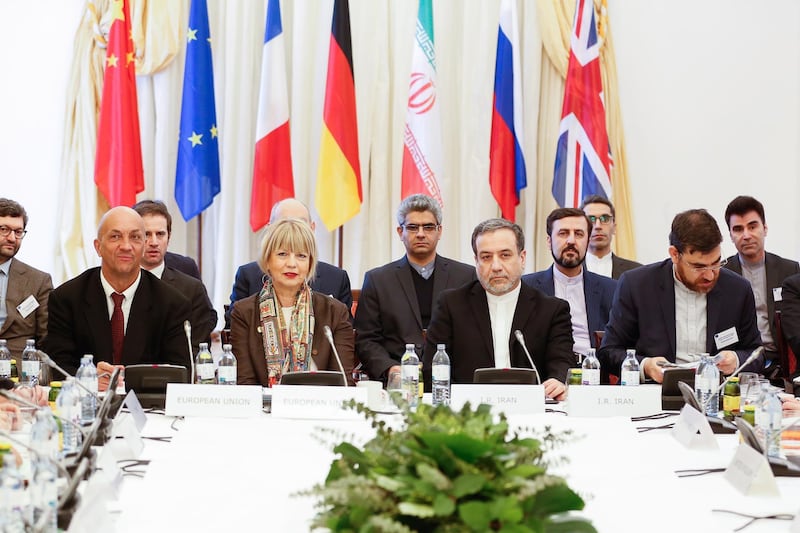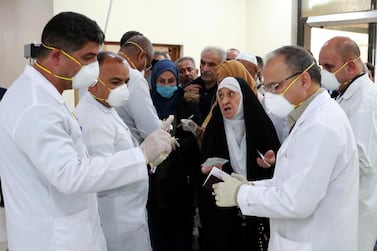European nations have suggested the mechanism meant to ease the effects of US sanctions on Iran could help Tehran as it grapples with a coronavirus outbreak.
Germany, France and Britain met the other signatories to Iran’s nuclear deal in Vienna on Wednesday.
A statement after the meeting noted a developing coronavirus crisis for Iran and China.
The parties said that the Instex financial mechanism, designed to funnel humanitarian and medical necessities to Iran around the sanctions, was close to processing its first transactions.
The talks were chaired by the EU’s top diplomat Josep Borrell.
In Iran, the Middle East nation hit hardest by the coronavirus, there have been 139 recorded cases and 19 deaths.
On Wednesday, Iran’s deputy foreign minister Abbas Araghchi tweeted that the virus had hit the country harder than US sanctions.
“The American economic sanctions were not, and will not be, as effective as a Covid-19 virus,” Mr Araghchi wrote.
The European Leadership Network think tank in London suggested that Instex could allow Iran to bypass US sanctions and increase its reliance on support from the World Health Organisation.
“Instex can be used to ensure Iran remains able to make payments to European suppliers and receive speedy and reliable deliveries of the equipment necessary to deal with the coronavirus outbreak,” the network said.
The signatories to the Joint Comprehensive Plan of Action met in Vienna on Wednesday, primarily to discuss their efforts to revive the faltering Iran nuclear deal.
The 2015 deal has been in trouble since 2018 when the US withdrew from it.
Relations between Tehran and Washington have steadily deteriorated since as a result of the US “maximum pressure” policy on Iran and the imposition of sanctions.
Relations reached a low point at the start of the year after the US assassinated Iranian general Qassem Suleimani in Iraq. Europe has looked to act as an intermediary between the two nations.
But in response to Iran’s regular flouting of the limits in the nuclear deal, Germany, France and Britain triggered the agreement’s dispute resolution mechanism in January.
The move, which could lead to new UN sanctions on Iran, had been aimed at bringing Tehran back within the confines of the deal after it suspended all limits on production of enriched uranium.
The material can be used to make reactor fuel, but also nuclear weapons.
Erwin van Vaeen, of Clingendael —the Netherlands Institute for International Relations told The National that Iran and the three European nations were sticking with the nuclear deal because of a lack of better options.
“There is nothing better on offer from the European perspective," Mr van Vaeen said.
"They don't like the US policy line because it may lead to regional conflict and it also puts Iran in a place where nothing will move because there is just too much pressure."







